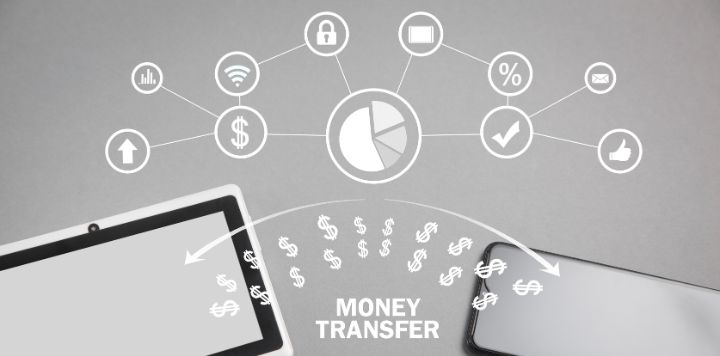In FY24, outward remittances from India under the Liberalised Remittance Scheme (LRS) reached an all-time high of $31.73 billion. This substantial increase underscores the growing trend of Indians sending money abroad for education, investment, and maintaining loved ones. The convenience of digital transfers over traditional demand drafts has played a significant role in this rise, as it offers a faster, more efficient, and user-friendly method of transferring money internationally. However, along with this convenience comes the increasing threat of fraud.
Common Foreign Remittance Scams Targeting Indians
The recent rise in online fraud is worrying. Scammers are taking advantage of the growing use of money transfer services worldwide. They misuse technology to trick people and make illegal profits. Many innocent individuals have fallen victim to various money transfer scams. Here are some common scams to watch out for:
1. Phishing Scams: Fraudsters send fake emails or messages impersonating money transfer services or banks. They ask for personal information like login credentials, OTPs, or credit card details.
How to protect yourself: Be cautious of unsolicited emails or messages. Verify the sender’s identity before clicking any links or sharing information.
2. Fake Charity Scams: Scammers pose as representatives of fake charities overseas, often exploiting natural disasters or humanitarian crises. They urge you to donate through online money transfers.
How to protect yourself: Research the charity before donating. Verify their authenticity through official channels.
3. Emergency Scams: Fraudsters impersonate someone you trust, such as a friend, family member, or business associate, and request an urgent money transfer, often claiming it’s for an emergency.
How to protect yourself: Always verify the identity of the person requesting money by contacting them through a different communication channel.
4. Investment Scams: Fraudulent investment opportunities promising high returns with little or no risk entice victims to transfer money abroad. Once the money is transferred, the scammer disappears, leaving the victim with nothing.
How to protect yourself: Thoroughly research investment opportunities. Verify the credentials of the investment advisor and the legitimacy of the investment.
5. Employment Scams: Victims are offered jobs overseas and asked to pay for visa processing, travel expenses, or other fees upfront. Once the payment is made, the scammer disappears, and the job offer turns out to be fake.
How to protect yourself: Confirm the legitimacy of the job offer and the company through independent research. Be skeptical of job offers that require payment upfront for processing fees.
6. Rental Scams: Scammers post fake rental listings on international property websites. They ask for a deposit or full payment upfront to secure the rental, but the property does not exist or is not available for rent.
How to protect yourself: Never send money upfront for a rental without verifying the legitimacy of the property and the landlord.
7. Immigration Scam: Scammers claim there is an urgent issue with the victim’s immigration status that needs immediate resolution. They demand immediate payment via money transfer to fix the non-existent problem.
How to protect yourself: Contact the immigration agency directly using the official contact information found on their website.
8. Lottery Scam: The fraudster informs the victim that they have won a large sum of money in a prize draw. They ask for an advance fee to cover taxes or other charges to claim the prize.
How to protect yourself: Verify the legitimacy of the lottery or sweepstakes through independent sources. If you didn’t enter a lottery, be suspicious of any notification claiming you have won.
9. Relationship Scam: The scam typically takes place on social media platforms and dating websites. The fraudster poses as a potential romantic partner and wins the victim’s trust through regular, intimate conversations.
How to protect yourself: Never send money to someone you have not met in person, no matter how convincing their story is.
10. Piggybacking Scam: Scammers may target or monitor legitimate international money transfers and insert themselves into the transaction process. They then use this access to redirect funds.
How to protect yourself: Use strong, unique passwords and enable multi-factor authentication (MFA) on your accounts. Avoid clicking on links or downloading attachments from unknown or unsolicited emails.
Safeguard Your Money with Reliable Money Transfer Platforms
To minimize the risk of falling victim to fraudulent activities, it’s crucial to use reputable platforms for international money transfers. Using a trusted platform like BookMyForex ensures that your international money transfers are conducted safely, minimizing the risk of fraud and providing you with peace of mind. The platform implements advanced security protocols to protect your transactions. Additionally, BookMyForex has exclusive tie-ups with reputable banks to process money transfer orders, ensuring secure international transactions.



























